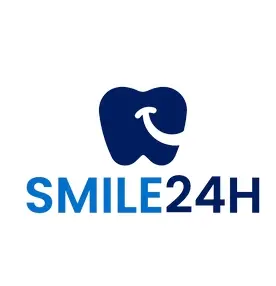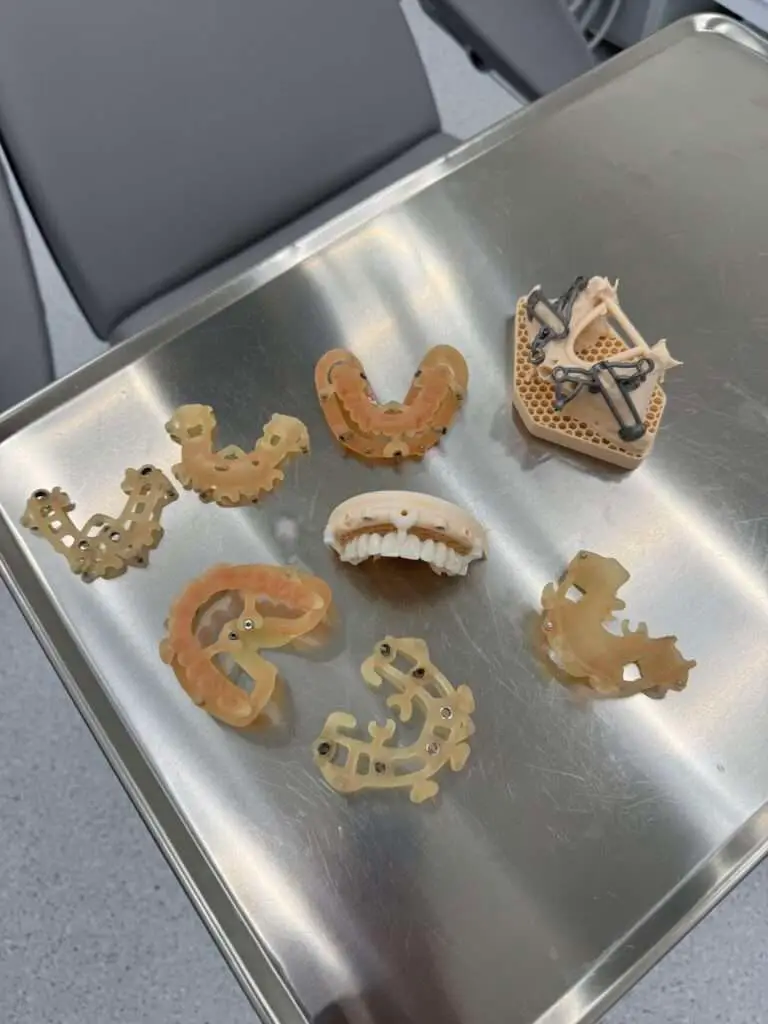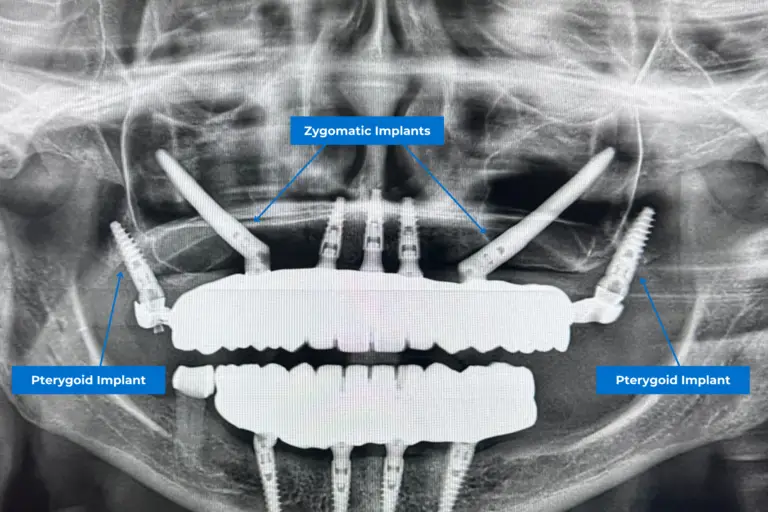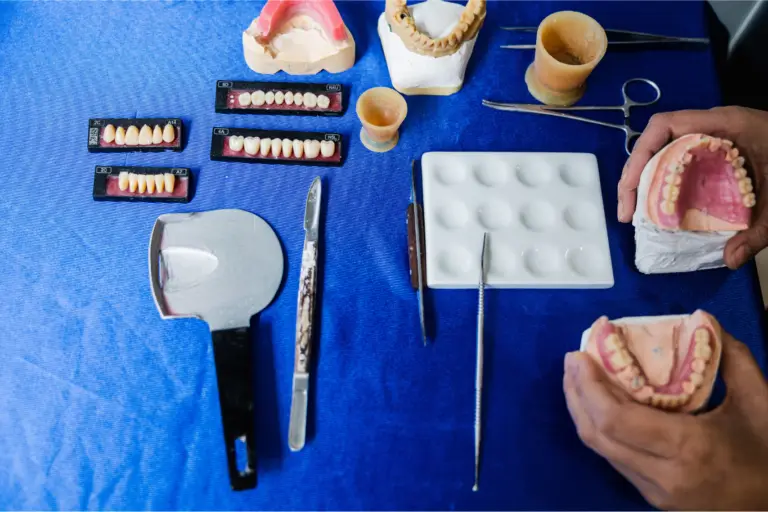Is There Any Alternative to Dental Implants?
If you are missing teeth and considering dental implants, consider exploring other tooth replacement options. It’s natural to be curious about different ways to replace missing teeth.
Dental implants are not the only solution for missing teeth. There are other alternatives available for restoring your teeth. We are dental experts who can help you find options for dental implants and solutions for missing teeth. As Smile 24h, an international network of expert dental offices certified by the ZAGA Centers, we are equipped to guide you through the alternatives to dental implants, ensuring you find the most suitable solution for your unique needs.
What are the Best Alternatives to Dental Implants?
Dental crowns, bridges, and removable dentures are two of the most common alternatives to dental implants and, in some cases, dental implant substitutes. One or more false teeth compose dental bridges, anchoring to the remaining natural teeth on either side of the gap.
Dentists make removable dentures that fit the patient’s mouth and can be removed for cleaning. These options are not as strong as dental implants. Still, they cost less and are less invasive for replacing teeth, so they can be considered one of the more accessible and viable implant alternatives available.
It’s crucial to factor in your oral health when considering dental procedures, such as dental implants or their alternatives. The number and location of missing teeth and the condition of your oral health play a significant role in the decision-making process.
Your overall oral health is also essential to consider when making this decision. While complete dentures are for people who have lost all of their teeth in their lower or upper arch, dental bridges are for those who have lost one or a few teeth in a row.
Dental Implant Substitutes: Fitting your concrete needs
When you need to replace teeth without implants, consider options like conventional removable dentures (a type of denture that rests on the gums without being anchored to dental implants), crowns, bridges, and resin-bonded bridges. Knowing about these choices is essential, as they are great for different needs.
For example, if you still have some teeth, partial removable dentures might work well. They fit right in with your existing teeth and prevent them from moving around.
Another good option is resin-bonded bridges, often called Maryland bridges. They’re less complex than regular bridges because they don’t need much work on the teeth next to them. These bridges attach to the back of the adjacent teeth with a false tooth in the middle. Resin-bonded bridges are perfect for front teeth because they look natural and don’t require much tooth work.
One of the most comforting aspects of these alternatives is the use of advanced materials. Modern dentures and bridges, thanks to materials like porcelain or composite resin, can closely mimic real teeth. This ensures that your smile appears and feels natural, instilling confidence in your dental health.
So, when you ask, ‘What are the alternatives to dental implants?’ the straightforward answer is:
- Complete Removable Dentures: These dentures rest on the gums without being anchored to dental implants. They are suitable for patients missing a full arch or all of their teeth.
- Partial Removable Dentures: Best for patients who still have some natural teeth, as they fill in the spaces and help prevent other teeth from shifting.
- Crowns: Used to cover a damaged tooth or placed on an implant; they restore the tooth’s shape, size, strength, and appearance.
- Fixed Bridges: Replace one or more missing teeth by anchoring to adjacent natural teeth; require preparation of surrounding teeth for support.
- Resin-Bonded Bridges (Maryland Bridges): Less invasive than traditional bridges, requiring minimal preparation of adjacent teeth. It is ideal for front teeth due to their aesthetic appeal and simplicity.
Choosing the right dental treatment option

To pick the best choice, talk openly with your dentist. At Smile24h, we suggest a certified ZAGA Doctor who follows the ZAGA Concept and puts patients first, adjusting the treatment to be more predictable, less invasive, and long-lasting. Since we work exclusively with ZAGA Certified clinics, considered Smile24h Expert Clinics, you can find the closest expert center using our doctor locator.
Our Smile24h Expert Clinics provide personalized treatments for each case. ZAGA Doctors will assess your specific situation, considering the health of your bones and gums, medical history, and unique anatomy to suggest the best choice for you. Money matters, too, since what your dental insurance covers can vary, and some options might be more budget-friendly over time.
Even though many good alternatives exist, many see dental implants as a long-lasting solution. They fuse with your jawbone, creating a solid base for new teeth. This makes them quite durable and helps maintain your jawbone health and preserve your face’s natural shape.
The decision between dental implants and another option depends on several factors. These factors include the number of missing teeth, your overall oral health, and your financial situation. Dental implants might be the best pick if you’re looking for something that will last a long time and look and feel like your own teeth.
Before making a decision, it’s essential to have a detailed chat with your dentist. They can give you a full rundown of the pros and cons for your situation and recommend the best solution. While dental implants might require more time and money at first, their lasting benefits can be worth it for many people.
Dental implants are the best option for replacing missing teeth. They provide some benefits that other options do not offer. Each choice has its advantages, and the right one for you might differ from someone else. Talking openly with your dentist will help you find the tooth replacement that best suits your health needs and lifestyle.

When Are Dental Implants Your Only Option to Restore Your Teeth?
If you have severely damaged bone, either you are already an edentulous patient (missing all of your teeth) or are soon to be edentulous, you need implant-supported dentures on common or zygomatic implants. In this medical case, patients have tried everything to replace missing teeth or couldn’t get traditional implants.
Patients who have worn dentures for a long time may require dental implants. This is necessary if they cannot keep the dentures in their mouth, chew properly, or experience bone loss because of prolonged use of removable dentures. Some people may have had bad teeth for years and now struggle to eat or chew without pain.
People have two options at this point. They can change their diet to improve their rotten teeth. Or they can continue dealing with the pain and difficulty of eating with discomfort.
Patients who can no longer tolerate their dental issues seek out our recommended centers for advanced implant dentistry. They hope for significant improvements and find efficient treatment solutions.
Success Rate of Dental Implants
The success rate of dental implants is high, making them a reliable choice for those seeking tooth replacement options. Many patients worry about the outcomes of these more complex dental treatments, but the data on dental implants should ease these concerns. Studies show that dental implants have a survival rate of around 95% and a success rate of almost 90% (2023, Comparing the Long-Term Success Rates of Tooth Preservation and Dental Implants: A Critical Review. Journal of functional biomaterials, 14(3), 142.)
According to this impressive statistic, most dental implants last a long time and are stable replacements for missing teeth.
Understanding this success rate is crucial for anyone considering their tooth replacement options. Other options for tooth replacement include bridges and dentures. However, patients consider dental implants more reliable and successful over time.
Dental implants are a preferred choice for many due to their long-term success rates. These options help in different situations, but dental implants are the most permanent and stable, resembling natural teeth.
Moreover, dental implants’ high success rate is due to their design. They integrate with the bone, forming a solid foundation that supports artificial teeth. This integration ensures the implant stays in place and helps maintain bone health and facial structure over time.
Patients considering dental implants should not let fear deter them. Dental implants are a safe and effective way to restore smiles.
Ultimately, they have a high success rate due to dental technology and techniques advancements. Talk to your ZAGA Dentist to find the best tooth replacement. Dental implants are a reliable and effective option.
When Do You Need Zygomatic Implants?
As an alternative to dental implants, zygomatic implants anchor not into the jawbone but into the zygoma (cheek) bone. The Zygoma bone doesn’t shrink, so there’s always enough bone for stable implants.
Patients arrive at the dental center for zygomatic rehabilitation mostly when it’s their last chance for stable implants. These implants give them long-term, functional, and permanent new teeth.
The last studies about the success rate of Zygomatic Implants reported a cumulative success rate of 96.1% after more than 5 years (Solà Pérez A, Pastorino D, Aparicio C, et al. Success Rates of Zygomatic Implants for the Rehabilitation of Severely Atrophic Maxilla: A Systematic Review. Dent J (Basel). 2022;10(8):151. Published 2022 Aug 12. doi:10.3390/dj10080151), proving the incredible success rate that zygomatic implants have.
Join the Quality of Life Study at Smile24h.com for an exclusive opportunity to participate in a scientific study aiming to shed light on the transformative impact of full-mouth rehabilitation treatments, enhancing patients’ oral health and overall quality of life. This study offers valuable insights that could encourage you and other patients needing full-mouth restoration to take the first step toward enhanced well-being and a brighter smile.
We are studying how patients with Zygomatic Implants feel about their lives from 1 month to 3 years after surgery.
The study focuses on the quality of life for these patients. We want to understand how their well-being changes over time. Our goal is to gather information on their experiences and outcomes.







